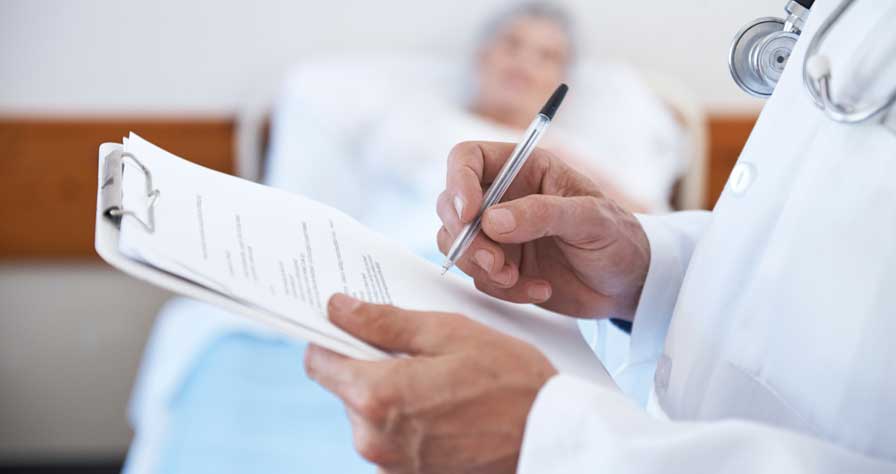What is C. Diff?

C. diff or Clostridium difficile is a bacterium that causes symptoms ranging from diarrhea to potentially fatal inflammation of the colon. This infection is found most often in hospitals and long-term healthcare facilities. Most C. diff infections occur in those taking antibiotics. While the elderly are at the greatest risk occurrences are increasing among younger and healthy individuals without a history of antibiotic use or exposure to healthcare facilities. C. diff spores can survive outside the body for an extended period of time. These spores can be found on bed linens, bed rails, light switches and medical equipment. This infection can also be transmitted from person-to-person through contaminated equipment and the hands of people coming in contact with the infected patients.
The most common symptoms are:
- Watery diarrhea
- Fever
- Loss of appetite
- Nausea
- Stomach pain
- How is C. diff treated?
The first step is to identify and discontinue taking the antibiotic that triggered the infection. Then, ironically, C. diff can be treated with antibiotics. In severe cases, surgery may be performed to remove the infected part of the colon. This is rare and is only needed in one or two out of every 100 patients infected.
- How can I prevent contraction of the C. diff infection?
It is essential to make sure any individual coming in contact with infected or potentially infected patients clean their hands thoroughly with soap and water or an alcohol-based hand cleanser after contact. Taking only the antibiotics prescribed to you will also reduce your chance of getting this infection. Make sure to wash your own hands frequently, especially before eating and after using the restroom.
C. diff doesn’t usually spread to those not taking antibiotics, so visitors are not likely to get this infection. However, to be on the side of caution, visitors should clean their hands before and after their visit and ask the nurse if they need to wear protective gear (e.g. gloves and gowns).
- What actions are hospitals taking to prevent C. diff infections?
- Doctors, nurses and other healthcare providers wash their hands often with soap and water or an alcohol-based cleanser. This helps to stop the potential spreading of the C. diff bacterium.
- Thoroughly clean hospital rooms and medical equipment that have been used to treat patients.
- Have a Contact Precautions in place and enforce it. Contact Precautions consist of:
- C. diff patients should have a single room or share a room only with another C. diff infected person.
- Healthcare providers should wear gloves and protective gowns when taking care of the patients.
- Visitors may also be asked to wear gloves and gowns.
- When leaving the room, all contaminated gowns and gloves should be appropriately disposed of and visitors wash their hands.
- C. diff infected patients should stay in their hospital room as much as possible and avoid common areas such as the cafeteria. They should only leave their room for treatments and tests.
- Give patients antibiotics only when it is necessary.



